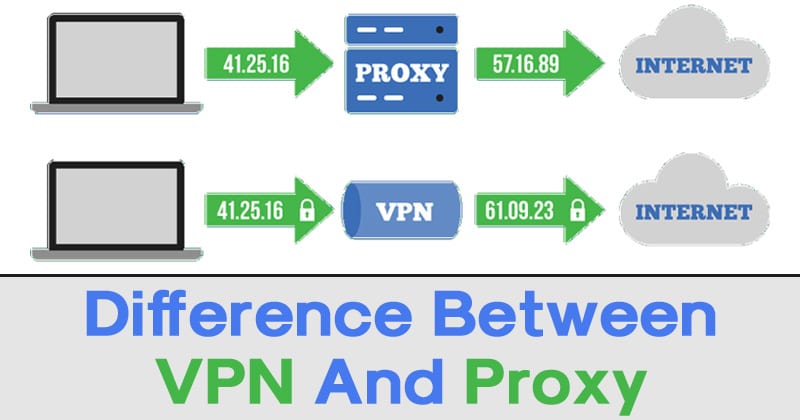Disproving Myths: What Proxy Servers Can and Are Not Able To Perform

In the modern digital world, proxies have become a subject of interest and ambiguity for many internet users. As our online lives becoming tightly linked with concerns about privacy and safety, grasping what proxy servers can actually do is crucial. Many myths exist, and misinformation can lead to unfounded beliefs about how these tools operate. This article aims to shed light on the realities of proxy servers, helping you comprehend their functionalities, benefits, and restrictions.
Proxy servers serve as intermediaries between individuals and the internet, delivering various gains for both personal and commercial purposes. Yet, not all that is said about them is true. From boosting internet privacy to facilitating access to geo-restricted content, proxy servers have many applications. Yet, their performance can differ significantly depending on the kind of proxy and how it is set up. Join us as we bust popular myths related to proxy servers and elucidate what they can and cannot do.

Comprehending The Role of Proxy Servers
These servers act as intermediaries between a user's device and the internet. As soon as a user connects to the internet through a proxy server, their requests are routed via the proxy prior to reaching the target website. This method hides the user's IP address, providing a degree of secrecy and security. Essentially, a proxy server retrieves data from the internet for the sake of the user, causing it to appear as though the request is originating from the proxy rather than from the user's device.
There are multiple categories of proxy servers, each serving distinct purposes. For instance, HTTP proxies are commonly used for web traffic, while SOCKS proxies can process diverse types of traffic, including email and video streaming. Transparent proxies may not alter requests or responses, commonly used in organizational networks for data filtering. Comprehending these various types helps users pick the right proxy server to meet their specific needs, be it for privacy, security, or content access.
The functions of proxy servers extend beyond anonymity. They can enhance online security by screening harmful content, blocking access to malicious sites, and shielding sensitive data. Additionally, proxy servers boost internet performance by caching frequently accessed content, diminishing load times, and reducing bandwidth usage. This multifaceted role illustrates how proxy servers are vital tools for individuals and businesses aiming to optimize their online activities and protect their information.
Benefits and Risks of Using Proxy Services
Proxy services offer a variety of advantages for individuals desiring enhanced online confidentiality and safety. By directing internet connections through a proxy, individuals can hide their IP addresses, making it more difficult for sites and online services to track their activities. Omeka.net increased disguise can be notably advantageous for those who prioritize their privacy while surfing or participating in online activities. Also, proxy servers can help individuals get around geo-restrictions, allowing entry to materials that may be unavailable in their region, such as media platforms or certain sites.
Nonetheless, there are also dangers connected with using proxy servers, especially when opting for complimentary or untrusted providers. Free proxies often have weak protection measures and can leave users to data breaches or malicious attacks. Individuals may find their private data at stake when using insecure servers, making it critical to choose a reliable service. Additionally, dependence on servers can lead to reduced connection speeds, particularly when streaming bandwidth-intensive materials, which may detract from the overall online satisfaction.
Moreover, it's vital to acknowledge that not all servers provide the identical level of safeguarding against hackers and online dangers. While a server can hide IP addresses and provide disguise, it doesn’t automatically encrypt information, which is a critical feature for secure online communication. Therefore, users must consider the pros and cons carefully and reflect on their specific needs and situations when deciding whether to use a proxy service.
Proxy servers across Various Fields
Proxy servers have a variety of uses across different areas, providing essential services that improve online experiences and security. Within the realm of cybersecurity, companies use proxies to create an extra layer of defense against online threats. By directing traffic through a proxy, organizations can monitor and manage data flows, effectively managing threats and safeguarding confidential data. Moreover, proxies can restrict staff access to certain sites, ensuring a focused work environment and enhancing overall productivity.
A significant application of proxy servers is in content access, particularly for bypassing geographic restrictions. Individuals leverage these servers to access geographically restricted content on platforms such as Netflix and Hulu, allowing for a more diverse entertainment experience without being restricted by geography. Many opt for specialized proxies designed for streaming to maintain high speed and performance, ensuring smooth watching without disruptions. Such capabilities has made proxy servers a popular choice for users looking to explore an extensive range of content that would otherwise be inaccessible.
In web scraping and market analysis, proxies are essential tools for companies and users alike. They allow users to collect data from multiple websites without causing red flags that would result in bans or restrictions. By employing multiple proxies, scrapers can distribute their queries, simulating authentic user actions and thus avoiding detection. This capability gives companies a strategic advantage by enabling them to obtain insights and analytics from competitors quickly and effectively, reinforcing the role of proxy servers as a critical asset in today's data-centric approaches.
